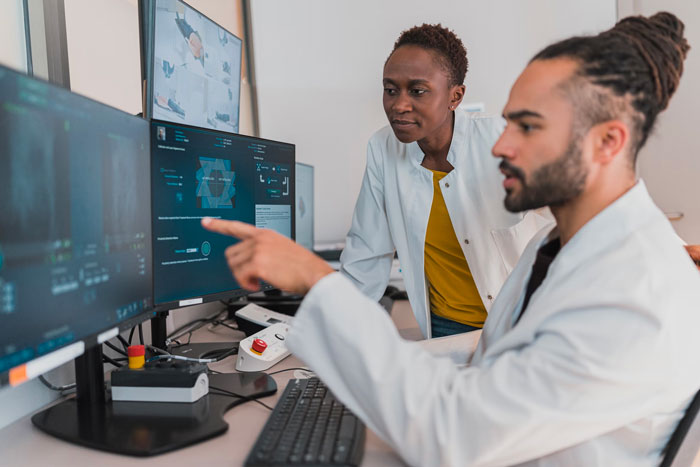Teen Psychopharmacology Treatment
Behavioral and Mental Health Psychopharmacology Treatment For Teens & Adolescents in Dallas, Texas

Evidence-Based Medication Treatment For Healing
Individuals learn how to overcome and manage their behavioral and mental health challenges with evidenced-based interventions. For teens struggling with symptoms associated with their mental health concerns, they may need the addition of pharmacology and prescription medications.
Most of the teens in our programs are prescribed medications and while their admission to BPA indicates severe symptoms, we try to reduce the amount of times medication management is associated with “severe symptoms” as we are trying to normalize medication management.
At BasePoint Academy, we’re here to help you and your teen pursue the right treatment plan that suits their unique needs.
What Does Psychopharmacology Treat?
It was designed to treat a myriad of mental health disorders and concerns, many of which are present in teens. Diagnoses range from mood disorders, Bipolar Disorder, Attention Deficit Hyperactivity Disorder (ADHD), to some anxiety disorders and symptoms of psychosis.
What Is Psychopharmacology?
Psychopharmacology is a field of psychiatry that focuses on the study and use of prescription medications in the treatment of behavioral and mental health disorders. After detailed evaluations and alongside nonprescription interventions, A Psychopharmacologist will prescribe psychotropic drugs in order to reduce negative symptoms related to a mental disorder.
Psychopharmacologists is a well-researched and respected body of medicine. Clinical psychopharmacology relies heavily on basic science, neuroscience, applied science, and translational research to understand the effectiveness of prescribing antipsychotics and psychotropic medications.
The science behind Psychopharmacology helps our mental health providers discover how long a psychotropic drug stays in the body, what it does to neurotransmitters and physiology while there, and how it interacts with other medications.
How Does Psychopharmacology Work?
Psychopharmacology works best when administered alongside evidence-based behavioral and mental health therapies such as Cognitive Behavioral Therapy, Dialectical Behavioral Therapy, and Motivational interviewing. This is to ensure the patient is treated holistically and given the best possible chance at maintaining a positive outcome.
Depending on the patient’s diagnosis and the severity of their mental health condition, there are several different types of prescription medications that our psychiatrists may be prescribing.
The teen-focused healthcare provider will monitor the patient’s response to the medication and determine how effective it is, making adjustments as needed.

Common Psychopharmacology Prescriptions
Anti-anxiety medications, such as SSRIs, hydroxyzine, or buspirone are common mental health prescriptions that helps reduce the effects of panic attacks or excessive worry and fear. These medications are intended for use alongside behavioral therapy where the teen will develop self-sufficiency and effective coping skills to become more independent over time
Certain classes of antidepressants increase neurotransmitter activity in the brain, such as serotonin, norepinephrine, and dopamine. Selective Serotonin Reuptake Inhibitors (SSRIs) are another type of antidepressant that inhibits the brain from reabsorbing serotonin by neurons to increase serotonin levels by keeping it available.
Stimulants are substances that increase the activity of the central nervous system to boost energy, attention, pleasure, and alertness. Adderall® (amphetamine and dextroamphetamine), Ritalin® and Concerta® (methylphenidate), and Dexedrine® (dextroamphetamine) are some common prescription stimulants.
Anti-psychotics are a class of prescription medications that help relieve symptoms of acute psychosis or false perceptions of the real world, including delusions and hallucinations.
Prescription medications for mood disorders are called mood stabilizers. They effectively balance the patient’s mood by decreasing abnormal brain activity.
Psychopharmacology Vs. Pharmacology: What’s The Difference?
Pharmacology is often confused with Psychopharmacology, but they are different in intent. Pharmacology focuses on the study of how pharmaceutical substances interact with the body in terms of overall physical health.
Psychopharmacology is more acutely focused on the interaction of prescription medications and specific neurotransmitters and nervous system sites in the brain. This field measures the effects of medications on mental health conditions and subsequent behaviors.
Both of these fields require ongoing and up-to-date study and education to maintain awareness of new and developing medications, side effects, and supplemental treatments. At BasePoint Academy, we wholeheartedly promote ongoing education for our providers and value the benefits that come with practicing on the leading edge of our field brings for our patients.

What Psychopharmacology Treatment For Teens Looks Like At BasePoint Academy
Every teen patient we treat will first undergo a detailed intake evaluation in order to assess their current state from a mental, physical, and emotional perspective. Based on this assessment, we will develop an individualized treatment plan that suits the unique needs of the patient.
Depending on their diagnosis and the severity of their symptoms, their treatment plan may include prescribing antipsychotics, antidepressants, psychotropics, anti-anxiety medications, stimulants, or mood stabilizers. As with every treatment plan, the patient’s responsiveness and physical interaction with the medication with be monitored, tracked, and adjusted as needed.
Psychopharmacology FAQs
Psychotropic drugs impact one’s mental state and the ability to function at a cognitive level. This includes medications and substances such as antipsychotics, mood stabilizers, and antidepressants.
Psychoactive drugs are substances that affect brain function and are separate from psychotropics. This category includes depressants, stimulants, opioids, and hallucinogens.
Any qualified physician or psychiatrist who treats patients by prescribing psychotropic medication is considered to be a psychopharmacologist. At BasePoint Academy, our executive and treatment teams include several of these qualified providers.
Psychopharmacologists routinely treat Attention-Deficit Hyperactivity Disorder (ADHD), Generalized Anxiety Disorder, Major Depressive Disorder or Mood Disorders, Panic Disorders, Post Traumatic Stress Disorder (PTSD), Bipolar Disorder, Schizophrenia, and Dual Diagnosis.
These psychiatric services sound similar but do offer a few differences. The process of initial evaluation and prescribing the necessary medication is within the scope of psychopharmacology.
Medication management is more closely related to the process of overseeing medications already prescribed to a teen patient to ensure they are following the prescribed dosage and frequency. At BasePoint Academy, we utilize both terms interchangeably because even our medication management appointments are informed by psychopharmacology concepts.
At BasePoint Academy, we utilize both terms interchangeably because even our medication management appointments are informed by psychopharmacology concepts.
Find Out If Psychopharmacology Is Right For Your Teen
Helpful Articles Related to Teen Mental Health Therapy


